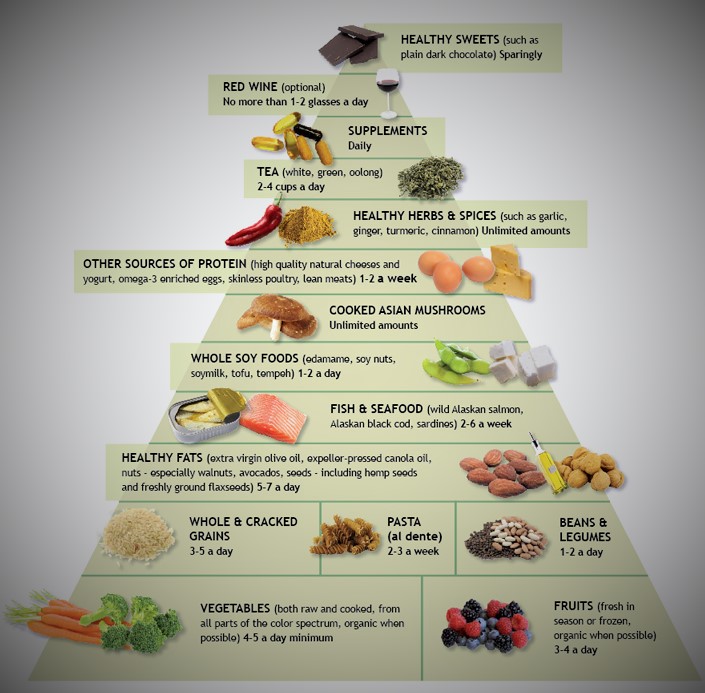In recent years many specialized diets have gained popularity among some people with arthritis. To date, none of these claims have been substantiated by rigorously controlled studies. That said, some people find that certain foods trigger changes in symptoms – either for the better or the worse. If you find yourself noticing this type of pattern, try keeping a food diary for a few weeks to find out if indeed what you eat makes a difference or if you have food sensitivities.

Whether a person is affected by a chronic illness or not, there are some straightforward guidelines that if followed, would lead to improved health and well-being for almost everyone.
Whatever you decide, expert agree that there are basic guidelines to good nutrition, which are:

Maintain a Healthy Weight
Besides the well-known medical problems individuals can develop as a result of weight gain (high blood pressure, diabetes, cancer, stroke, and heart disease), extra weight puts additional stress on joints and bones. For example, the corticosteroid prednisone causes weight gain to some degree in nearly all patients who take the medication and can lead to redistribution of body fat to places like the face, back of the neck, and abdomen.
On the other end, underweight persons can suffer from medical problems ranging from chronic fatigue and anemia to lowered resistance to infection and clinical depression. Inflammation, certain medications, and depression associated with a chronic illness may lessen your appetite or upset your stomach, making it difficult for some people with spondylitis to maintain a healthy weight. This is especially true for those with spondylitis of inflammatory bowel or Crohn’s disease that experience gastrointestinal problems on top of the arthritis symptoms. Report any severe weight loss to your doctor.